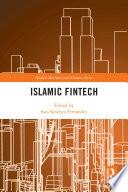
Business Communication in the Islamic World
Seminar paper from the year 2007 in the subject Communications - Intercultural Communication, grade: 1,3, Leuphana Universität Lüneburg, course: Intercultural Communications, 5 entries in the bibliography, language: English, abstract: What is it most people associate with thoughts of the Islamic or Arab World? It is true, no one will forget the horrible pictures of the Gulf Wars from 1980 to 1991 or the attack of radical Muslims on the USA on September 11, 2001, but dictators like Saddam Hussein and Osama bin Laden do not mirror the whole of the Islamic world. These radical Muslims and terror attacks are only exceptions, and it is not fair to see only this side. There are fanatics from other religions or racial offenders in the Western World as well, and it is unfair to think they are all the same because they belong to the same religious group. There are about 1.3 billion Muslims in the world and for the most part, they want only to exercise their religion without any aggressive intentions. When presented with the term “Arabic”, more traditional minds might think of men riding camels through the desert, wearing turbans. This is the more accurate image of the Islamic world; a very custom rich culture with an intense focus on hospitality . While both of these images are true, what people must recognize is the enormous business power these countries possess; and this power lies in much more than oil alone. Dubai, for example, is one of the fastest growing cities in the world with investments of hundreds of billions of US-dollars each year . It seems that there are no limits set in the world of the sheiks. In Dubai they have the Burj al-arab—the only seven-star hotel in the world—and a snow dome that offers skiing, even with the temperature outside at 50 . Furthermore, in Dubai they are building the 560 metres high Burj Dubai, which will be the highest skyscraper in the world after its completion . All this considered, it is obvious that it could be profitable to have a look at the Arabic countries for businessmen and investors. This was a short introduction to answer the question of “Why” conducting business with the Arabic world could be profitable. The following section will focus on the “How” aspect. I will explain how to cultivate a cooperative environment with Islamic business partners by describing their cultural views and customs, and what people should focus on or avoid in business transactions. It will be a general overview because Dubai is not like Bahrain, in the same way Germany is not like France, but there is one binding element for these countries – their religion.
- ISBN 13 : 3638007669
- ISBN 10 : 9783638007665
- Judul : Business Communication in the Islamic World
- Pengarang : Frederik Wendisch,
- Kategori : Language Arts & Disciplines
- Penerbit : GRIN Verlag
- Bahasa : en
- Tahun : 2008
- Halaman : 17
- Google Book : http://books.google.co.id/books?id=j3Yozf9ZB5IC&dq=intitle:Islamic+Communication&hl=&source=gbs_api
-
Ketersediaan :
Paper Business Communication in the Islamic World Leuphana Lüneburg Faculty II Intercultural Communications SS 2007 Frederik Wendisch 6th semester Lüneburg, June 28th 2007 Table of contents Table of contents I List of illustrations.






